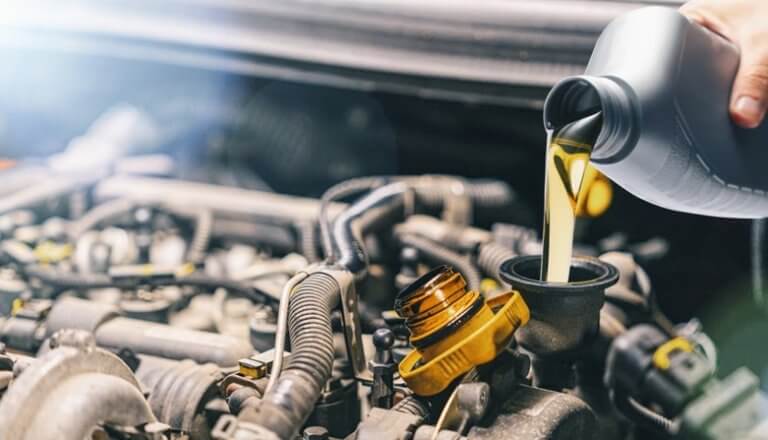If you’re in the market for a car, you may have noticed that most passenger vehicles in our market run on gasoline fuel. In fact, gas-powered vehicles are so common that we wouldn’t blame you for not even considering a diesel-powered car!
While the majority of passenger cars are gasoline powered, diesel-powered vehicles are still an option in many segments. Diesel engines come with their own set of pros and cons compared to gas powered vehicles that may be worth considering before purchasing your next car or truck.
Gas vs. Diesel Engine
The main difference between gasoline and diesel powered engines is in how they are designed to operate. Gas powered engines use spark plugs which create sparks to create combustion with fuel and air. This combustion moves the pistons which, in turn, moves the car. Gas engines consistently rely on the spark from the spark plug to create ignition.
In contrast, diesel engines do not use spark plugs to create ignition. Instead, diesel engines are designed to carry higher amounts of pressure in the cylinders; this pressure is used to create heat and combustion in place of spark plugs. Because diesel is a less volatile fuel than gasoline, spark plugs are not needed to maintain correct engine firings for the engine to operate properly.
Fuel Efficiency
One of the biggest topics of discussion with diesel engines is their efficiency. Diesel engines tend to be significantly more efficient than their gasoline counterparts when it comes to fuel consumption. Due in part to diesel containing more energy than gasoline, it’s common for diesel engines to travel 20% – 30% further on a liter of fuel compared to gasoline engines.
Power
Because of the nature of diesel fuel and the way in which diesel engines work, diesel tends to create significantly larger amounts of torque. This is extremely useful for heavy towing, and is a large reason for why most cargo trains and tractor-trailer trucks run on diesel fuel.
Maintenance
A downside of diesel engines is that they tend to have higher maintenance costs than gasoline engines. Maintenance frequency is fairly indifferent but, diesel engines do often require more specialized oil and filters; increasing parts prices for maintenance.
Emissions
Diesel emissions have been a huge topic of discussion in recent years due to some major scandals that have occurred; tarnishing diesel-powered cars in the North American market. Diesel engines, when optimized properly, do tend to emit more than gasoline engines. This is especially true of older diesel engines; the gap between modern diesel and gasoline engines is much narrower.
There have been debates on the impact of net emissions between gasoline and diesel. While diesel does tend to create higher emissions, diesel engines are much more efficient; requiring less fuel to travel the same distance as a gas engine. While this may not always offset the different, in some cases it does, and is worth keeping in mind.
Cost & Availability
Because diesel vehicles are less common than gasoline vehicles, it is somewhat more difficult to find than gasoline. That said, because there are many other diesel vehicles on the road, diesel is certainly not impossible to find; with many gas stations carrying both gasoline and diesel fuel. Diesel fuel is usually cheaper than gasoline, and also doesn’t tend to fluctuate in price as much as gasoline.
It’s Hard to Go Wrong
With how advanced and developed modern combustion engines have become as a whole, it’s hard to go wrong whether you pick a diesel or gasoline powered vehicle. Both can be highly reliable and efficient; it comes down to whether one works better for you than another in your application.
Reliable Fueling Services for Your Team
No matter which fuel you choose or need on hand, Roma Fuels can help make sure that you get it reliably and when you need it. With fuel delivery and on-site fuel storage available for a wide variety of fuels in industrial applications, you can count on us to keep you and your team fueled up.
Talk to us today to find out more about our fueling services!
